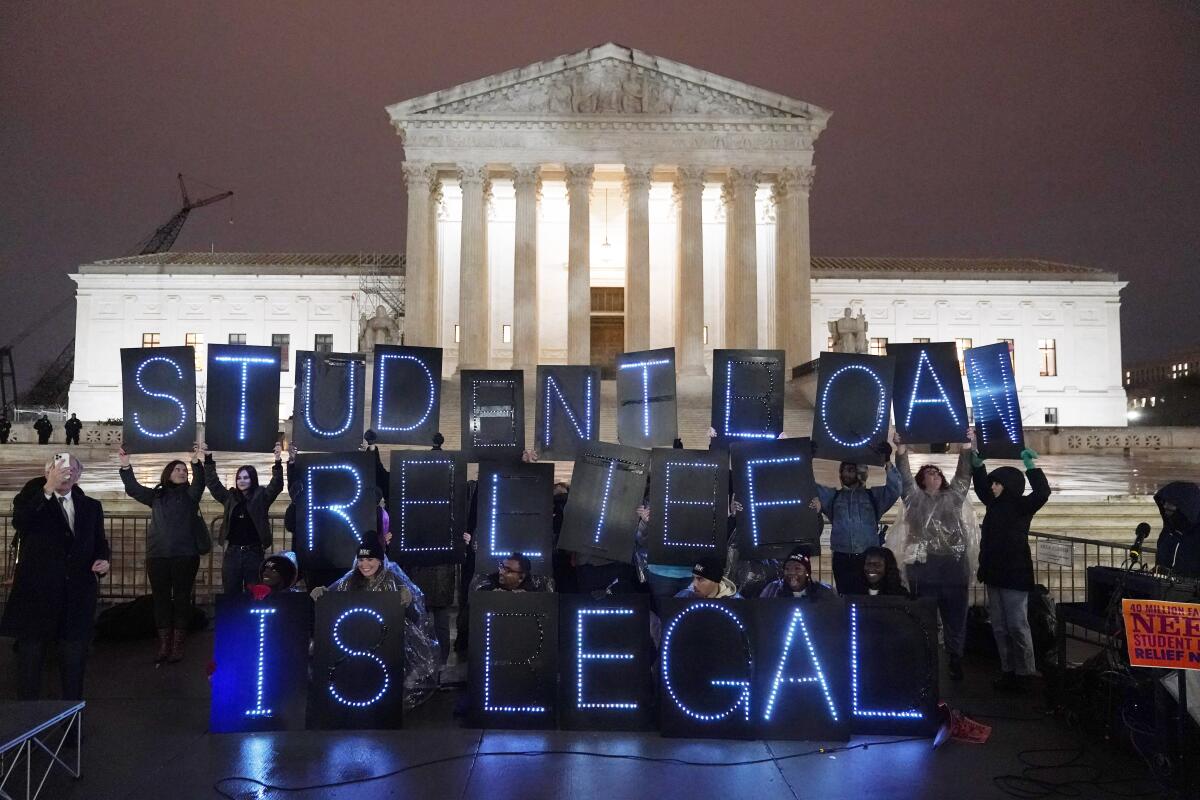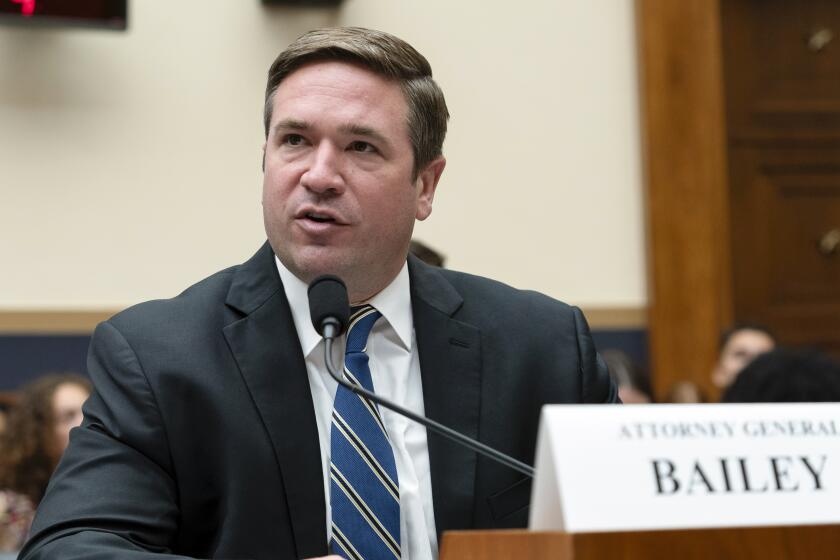New Biden student loan repayment plan put on hold by appeals court

A federal appeals court has put a temporary hold on the Biden administration’s latest student loan repayment plan, leaving millions of borrowers in the dark about how to resolve their debts.
A one-sentence order issued Thursday by the 8th Circuit Court of Appeals in St. Louis bars the U.S. Education Department from implementing or acting on the new SAVE plan before the court issues a ruling on a request from seven Republican state attorneys general for a more permanent injunction.
The order appears to block not just the updates to the plan that went into effect July 1, but also the provisions that have been in effect for borrowers since SAVE was introduced in mid-2023.
Education Secretary Miguel Cardona issued a statement on Friday, confirming and elaborating on a spokesperson’s statement the day before that said the department would shield participants while the case proceeds.
“Borrowers enrolled in the SAVE Plan will be placed in an interest-free forbearance while our Administration continues to vigorously defend the SAVE Plan in court,” Cardona said. “The Department will be providing regular updates to borrowers affected by these rulings in the coming days.”
The agency also stopped accepting applications Friday from borrowers wanting to enter the SAVE program.
The plan has helped “over 8 million borrowers access lower monthly payments, including 4.5 million borrowers who have had a zero dollar payment each month,” according to the spokesperson’s statement on Thursday.
SAVE, launched shortly after the Supreme Court threw out President Biden’s proposal for blanket student debt forgiveness in June 2023, allows borrowers to make monthly payments based on their discretionary income rather than on the amount they owe, and forgives any remaining balance on undergraduate loans after 20 years.
That’s not novel; what’s unique about the plan is that it offers much lower monthly payments, forgives unpaid interest for borrowers in compliance, and wipes out debts faster for borrowers who took out relatively small loans.
Federal judges block much of a Biden administration student loan repayment plan that offers a faster path to cancellation and lower payments for millions.
Two groups of Republican-led states challenged the plan, arguing that the Education Department didn’t have the legal authority to force taxpayers to pick up so much of the cost of the loans. In a series of conflicting rulings, federal judges have put parts of the plan on hold, lifted some of those holds, and now blocked (at least temporarily) the entire plan.
One immediate effect of Thursday’s order could be to raise the monthly payments for many of those enrolled in SAVE, by rolling back the changes the plan made to its predecessor, the REPAYE plan.
Starting last year, SAVE allowed borrowers to increase by 50% the amount of their income considered nondiscretionary, with their monthly payments set at 10% of the remainder. The increase in nondiscretionary allotments is barred temporarily by the order.
On July 1, SAVE participants were to have their monthly payments cut again, to 5% of their discretionary income. The order puts that reduction on hold as well.
When borrowers will feel the effects is another issue. After back-to-back rulings blocked and then restored the 5% reduction, the department told borrowers that monthly payments would be temporarily paused.
Advocates of student borrowers blasted Thursday’s ruling and called for the payment pause to be extended.
“Today’s extreme, unsigned, single-sentence order from a judge out of Missouri’s Eighth Circuit Court of Appeals just sent the student loan system into chaos, and borrowers will be forced to pay the price,” Mike Pierce, president of the Student Borrower Protection Center, said in a statement. “It is clear that the Biden Administration can and must protect borrowers from this partisan lawfare [by] shutting the student loan system down until borrowers have access to the rights they were promised under the law.”
Natalia Abrams, president and founder of the Student Debt Crisis Center, said the back-and-forth rulings were causing enormous frustration.
“It’s hard for any student loan borrower to trust what’s going on,” she said, adding, “What a mess.”
The case heard by the 8th Circuit pits the states of Missouri, Arkansas, Florida, Georgia, North Dakota, Ohio and Oklahoma against the Biden administration. The states of Kansas, Alabama, Alaska, Idaho, Iowa, Louisiana, Montana, Nebraska, South Carolina, Texas and Utah have a separate lawsuit challenging the SAVE plan.
More to Read
Sign up for Essential California
The most important California stories and recommendations in your inbox every morning.
You may occasionally receive promotional content from the Los Angeles Times.












